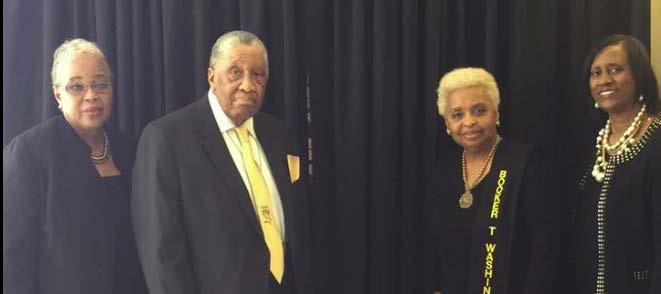
1 minute read
Legacy of the Land: The Enduring Impact of John Lee “Bud” Brice
In the quiet countryside of Blair, South Carolina, where fields stretch into the horizon and the soil carries stories of resilience, one name remains etched into the land and hearts of the community—John Lee “Bud” Brice. Born in 1901, Brice was more than a farmer; he was a trailblazer whose life wove together the virtues of selfsufficiency, justice, and unwavering service.
After marrying Bessie R. Camack, Brice moved to Greenville, South Carolina, before returning to Fairfield County in the early 1920s. There, he purchased over 100 acres of land—now known as John Brice Road— establishing a homestead rooted in independence. One of the area’s first tobacco growers, he also cultivated cotton, corn, and cattle. His land teemed with fruit trees, vegetable gardens, and livestock, producing butter, milk, eggs, and ground cornmeal—a testament to his belief in living wholly off the land.
Advertisement
Brice's influence reached far beyond agriculture. In the 1940s, he helped maintain Haitian Hill School for Black students by securing hot lunches and firewood. When the school tragically burned down, he was the only community member with a car, and despite his valiant efforts, could not save it—an act remembered by student Doby Young.
Though his formal education ended in third grade, Brice’s intellect and leadership carried him into the front lines of the Civil Rights Movement. In the 1960s, he traveled by night with fellow advocates Ben Mack and Mr. Belton to Atlanta, Selma, and Montgomery. There, they studied under giants like Dr. Martin Luther King Jr., Septima Clark, and Andrew Young. After receiving a certificate from the Southern Christian Fellowship Conference's Citizenship Training Program, Brice returned home with renewed purpose. He began conducting trainings in local churches, educating community members on the Constitution’s preamble, which was then required for Black voter registration.

A founding force behind the Shel-Blair Credit Union, Brice helped empower the Shelton-Blair communities financially. As a longtime Haitian Hill Baptist Church deacon and Silver Hills Masonic Lodge member, he stood as a beacon of wisdom and dignity.
John “Bud” Brice’s legacy continues in the fight for civil rights and voter equity. His grandchildren and great-grandchildren continue to walk the path he forged—where the soil is not just tilled for crops, but for justice, hope, and change. The struggle continues.








